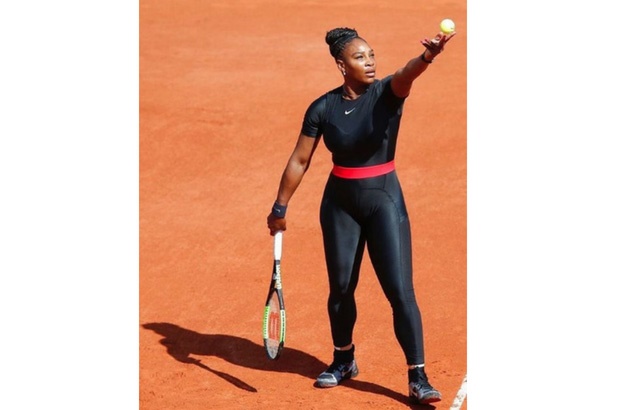
The highly anticipated comeback by new mom and tennis champ, Serena Williams, has been dashed by a pectoral injury, resulting in her announcement of her withdrawal from the 2018 French Open.
“I’m beyond disappointed,” she said while addressing the media at a press conference yesterday, revealing that she would not be able to take on her long-time rival, Maria Sharapova, in the upcoming fourth-round match of the Grand Slam.
“You know, I gave up so much, from time with my daughter to time with my family. I put everything on the court, you know. All for this moment. So it’s really difficult to be in this situation, but I always, for now in my life, I just always try to think positive and just think of the bigger picture and hopefully the next events and the rest of the year.”
Prior to the announcement, Williams had played 6 matches in 6 consecutive days, alternating single matches while also playing doubles with sister Venus Williams, and it was during this time that Serena first felt pain.
“In my doubles yesterday, I tried a lot of different tapings, and I tried lots of different types of support to see how it would feel under match circumstance,” she said. “It didn’t really get a lot better.”
But to get as far as she did is impressive considering that Serena had suffered greatly after her daughter Olympia was born last September – including an emergency C-section, multiple surgeries and six weeks of bed rest.
The tennis champ recently admitted in an interview with Harper's Bazaar that she had also suffered postnatal depression (PND), a condition experienced by 1 in 10 new moms.
The condition (also known as postpartum depression) occurs due to the drastic biochemical and hormonal changes that happen in a woman’s body following pregnancy and birth, and symptoms include insomnia, feelings of hopelessness, worthlessness, inadequacy, despair and a fear of losing control.
"I think people have to talk about it more because it's almost like the fourth trimester, it's part of the pregnancy.
"I remember one day I couldn't find Olympia's bottle and I got so upset I started crying because I wanted to be perfect for her," she admitted.
It may have been this desire to be perfect that motivated the mom to push beyond her limits.
It also doesn’t help that in tennis a woman is automatically ranked lower after having a child, a system that has come under fire in light of Serena’s fall from No.1 to the 453rd rank she entered the French Open with.
- Also see: Postpartum depression
It’s so unfortunate that one of the most beloved Grand Slam champions has had to bow out, a first in her 19-year long career, but the role-model is human after all and the setback will only make her next victory that much sweeter.
Can you relate to Serena Williams' situation? Did you suffer from post natal depression? Tell us your story by emailing to chatback@parent24.com and we could publish your letter. Do let us know if you'd like to stay anonymous.
Read more:
- Postnatal depression quiz
- Are you suffering from post-natal depression?
- Exposing postnatal depression
Sign up for our weekly newsletter to receive Parent24 stories directly to your inbox.




 Publications
Publications
 Partners
Partners










